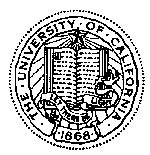
Author: A. Habig, for the Super-Kamiokande Collaboration
Title: Neutrino-induced upward-going muons in Super-Kamiokande
Abstract: Upward-going muons observed by the Super-Kamiokande detector are produced by high-energy atmospheric neutrinos which interact in rock around the detector. Those which pass completely through the detector have a mean parent neutrino energy of ~100 GeV, while those which range out inside the detector come from neutrinos of mean energy ~10 GeV. The neutrino baseline varies with the observed muon zenith angle, allowing for an independent test via nu-mu disappearance of the neutrino oscillations observed in the Super-Kamiokande contained events. 614 upward through-going and 137 upward stopping muons were observed over 537 (516) live days, resulting in a flux of Phi_t=1.74\pm0.07(stat.)\pm0.02(sys.), Phi_s=0.380\pm0.038(stat.)^{+0.019}_{-0.016}(sys.) x10^{-13}cm^{-2}s^{-1}sr^{-1}. The observed stopping/through-going ratio R=0.218\pm0.023(stat.)^{+0.014}_{-0.013}(syst.) is 2.9 sigma lower than the expectation of 0.368^{+0.049}_{-0.044}(theo.). Both the shape of the zenith angle distribution of the observed flux and this low ratio are inconsistent with the null oscillation hypothesis, but are compatible with the previously observed nu-mu <-> nu-tau oscillations. Taken as a whole, the addition of these higher energy nu-mu data to the contained neutrino events provides a better measurement of the oscillation parameters, narrowing the allowed parameter range to sin^22theta >~0.9 and 1.5x10^{-3}eV^2 <~ \Delta m^2 <~6x10^{-3} at 90% confidence.
Comments: DPF'99 proceedings, section 2 talk 7 6 pages Replaced 5/5/99 to correct a typo in the expected thru-mu fluxtableReport-no: DPF99 2-07